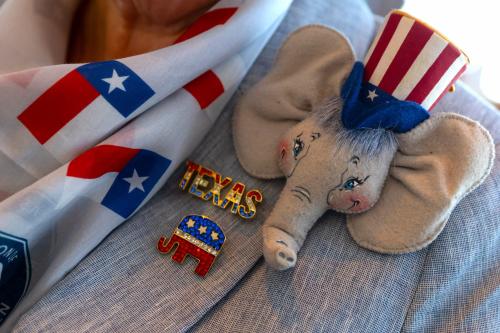With the August recess just around the corner, Congressional Delegations (CODELS) are gearing up for travels to various parts of the world. No matter where those delegations go, the press can be relied on to ridicule the travelers as itchy-footed wastrels, and their trips as junkets. The public will mostly agree with the press’ point of view.
The press finds Congressional travel to be a form of amusement. It makes a joke of most trips, especially if travel schedules include large cities, ceremonial dinners, or good hotels. The public finds such travel to be a perpetual irritant, especially in times of deficit and stalemate. It asks: why do the rascals need to go abroad when they can’t get the job done at home?
In recent years, the Congress has reduced its federally funded travel. Members have reacted in different ways. Some have tried to catch the wave of discontent by campaigning on the fact they own no passport. Some members simply do not leave the country, even though their committee work might be benefited by a look at how others do it.
Many members believe it is politically safer to travel on foundation-sponsored trips than on the taxpayers’ buck. They can assure constituents that they spent no federal funds. Those trips have value, but those travelers are, in fact, following someone else’s agenda rather than one determined by their committee’s jurisdiction.
As much as it may irritate the public, or amuse the press, Congressional travel is more than a vacation, joke, or irritant. Long before globalization, members of Congress had good reason to see the world. It’s pretty hard for the U.S. to be a world leader if its policy makers don’t even know what is out there.
Any committees dealing with our Armed Services, or national security, need to know the challenges that we, our troops, and our allies face. They can get it second hand, or see for themselves. And when our troops are placed in harms’ way, even members without such jurisdiction have good reason to visit our uniformed men and women abroad.
Foreign Affairs and Appropriations committees authorize and appropriate for our efforts abroad. Their interest is not just foreign aid, the unpopular grease for foreign policy, but also other activities like the Foreign Agricultural Service and Foreign Commercial Service which promote American exports to world. And even before Benghazi, Congress has needed to pay more attention to the conduct of our embassies abroad.
Many committees share trade jurisdiction. The executive branch handles the trade negotiations, but trade policy is constitutionally delegated to the legislative branch. Both houses must approve trade treaties. Members need to know how the multi-year negotiations are being conducted.
Right now the U.S is simultaneously negotiating series of treaties, including a Trans Pacific, a Trans Atlantic, a WTO Round, and several bilaterals. Congress gets regular reports from the executive branch. It also sends its own staff to report on negotiations. But there is no substitute for personal observations.
Members of Congress profit from meeting with foreign parliamentarians. We used to think we were way ahead of the rest of the world. Now we know we have much to learn from foreign government officials. We now know that the U.S. has one of the highest corporate tax rates in the developed world. Members with tax jurisdiction are scrambling to see just how other countries have lowered their rates.
Other developed countries in Europe and Oceania have successfully handled deficit/debt problems as serious as ours. As we enter our umpteenth year of legislative budget stymie, one may wonder why Congressional travelers are not more active in trying to find out how those countries did it.
Congress makes plenty of mistakes. It makes some in travel, too. Not every trip, nor every Congressional traveler, is wholly justified. But, for most members, foreign travel should be a part of their job description. And they should be prepared to fully explain why they went and what they learned.
In our shrinking, globalized, and terrorized world, we can expect that more travel will be needed, and will be taken. Private foundation trips are often helpful, but Congressionally planned, taxpayer financed, travel is most useful.
And we can expect that the press will continue to ridicule such travel, and the public to resent it. But, before constituents explode, they ought to ask their Congressman about the trip. They may find they have a better, and wiser, representative as a result of the travel.
(In the interest of full disclosure, it should be noted here that the writer, in another century, was a Congressional traveler.)



Commentary
Op-edTaxpayer Funded Congressional “Boondoggles” Are Much More Than A Vacation, A Joke, Or An Irritant
August 1, 2013